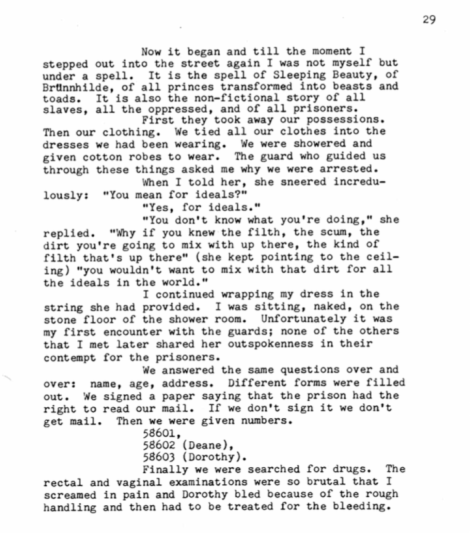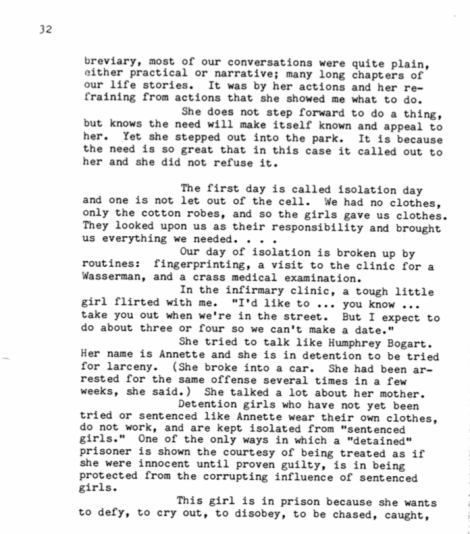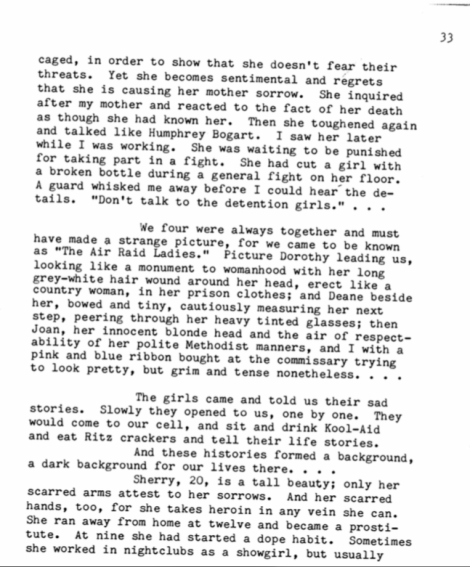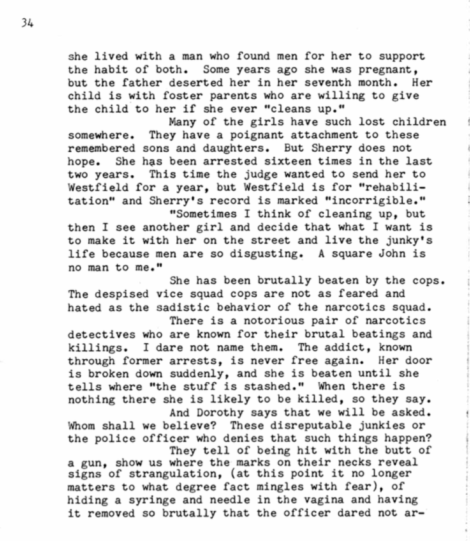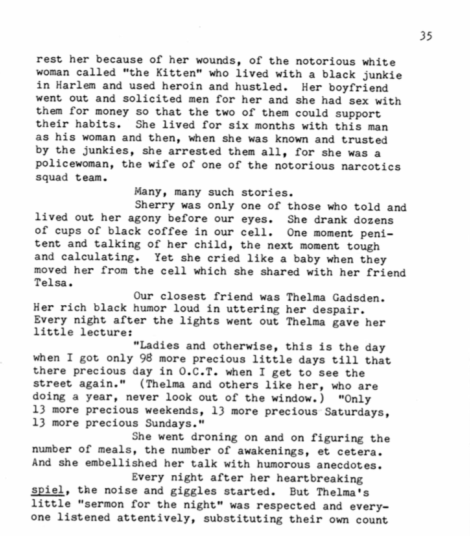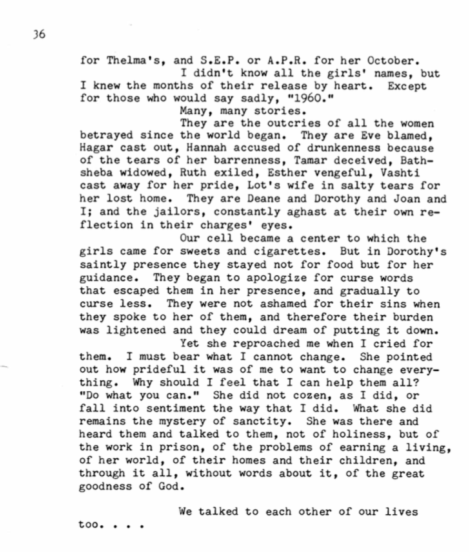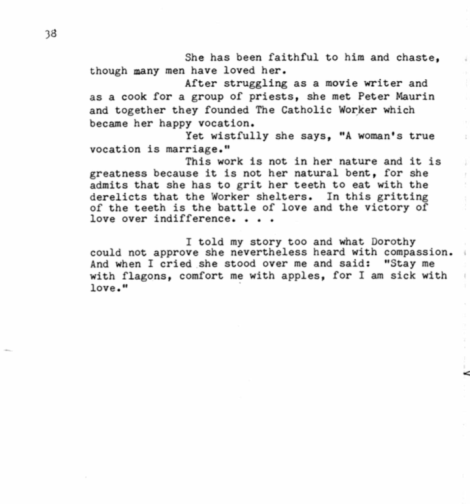Horrifying and heartbreaking:
“[W]e heard a moan of pain from the bedroom next door…The cries from the inner room grew louder—and abruptly stopped. There was a low sob, and then a man’s gruff voice said accusingly: ‘Useless thing!’
“Suddenly, I thought I heard a slight movement in the slops pail behind me,” Miss Xinran remembers. “To my absolute horror, I saw a tiny foot poking out of the pail. The midwife must have dropped that tiny baby alive into the slops pail! I nearly threw myself at it, but the two policemen [who had accompanied me] held my shoulders in a firm grip. ‘Don’t move, you can’t save it, it’s too late.’
“‘But that’s…murder…and you’re the police!’ The little foot was still now. The policemen held on to me for a few more minutes. ‘Doing a baby girl is not a big thing around here,’ [an] older woman said comfortingly. ‘That’s a living child,’ I said in a shaking voice, pointing at the slops pail. ‘It’s not a child,’ she corrected me. ‘It’s a girl baby, and we can’t keep it. Around these parts, you can’t get by without a son. Girl babies don’t count.’” […]
While such outright female infanticide is particularly pitiful and shocking, it is prenatal sex determination and sex-selective abortion that has been the real driver of the disappearance of girls:
Until the 1980s people in poor countries could do little about this preference [for sons]: before birth, nature took its course. But in that decade, ultrasound scanning and other methods of detecting the sex of a child before birth began to make their appearance. These technologies changed everything. Doctors in India started advertising ultrasound scans with the slogan “Pay 5,000 rupees ($110) today and save 50,000 rupees tomorrow” (the saving was on the cost of a daughter’s dowry). Parents who wanted a son, but balked at killing baby daughters, chose abortion in their millions.
The use of sex-selective abortion was banned in India in 1994 and in China in 1995. It is illegal in most countries (though Sweden legalised the practice in 2009). But since it is almost impossible to prove that an abortion has been carried out for reasons of sex selection, the practice remains widespread. An ultrasound scan costs about $12, which is within the scope of many—perhaps most—Chinese and Indian families. In one hospital in Punjab, in northern India, the only girls born after a round of ultrasound scans had been mistakenly identified as boys, or else had a male twin.
It’s not the poor and uneducated who are doing this:
[S]exual disparities tend to rise with income and education […] The discrepancy [is] far lower in poorer households. […] modernisation and rising incomes make it easier and more desirable to select the sex of your children. And on top of that smaller families combine with greater wealth to reinforce the imperative to produce a son.
In what might be called a sinister demonstration of the invisible hand, millions of people acting in what they think is their self-interest are not promoting but degrading the common good. (It makes you realize that Adam Smith wrote at a time when far higher levels of natural constraint on the expression of self-interest were taken for granted.)
[O]nly one region [of China], Tibet, has a sex ratio within the bounds of nature [103 to 106 male births for every 100 females]. Fourteen provinces—mostly in the east and south—have sex ratios at birth of 120 and above, and three have unprecedented levels of more than 130. […]
[W]ithin ten years, China faces the prospect of having the equivalent of the whole young male population of America, or almost twice that of Europe’s three largest countries, with little prospect of marriage, untethered to a home of their own and without the stake in society that marriage and children provide. […]
Parts of India have sex ratios as skewed as anything in its northern neighbour. Other East Asian countries—South Korea, Singapore and Taiwan—have peculiarly high numbers of male births. So, since the collapse of the Soviet Union, have former communist countries in the Caucasus and the western Balkans. Even subsets of America’s population are following suit, though not the population as a whole. […]
Throughout human history, young men have been responsible for the vast preponderance of crime and violence—especially single men in countries where status and social acceptance depend on being married and having children, as it does in China and India. A rising population of frustrated single men spells trouble. […]
The crime rate has almost doubled in China during the past 20 years of rising sex ratios […] In India, too, there is a correlation between provincial crime rates and sex ratios. […]
If you think women in these societies are valued more highly and treated better because they’re rare, think again:
[In China,] stories abound [..] of bride abduction, the trafficking of women, rape and prostitution. [… A]ccording to the World Health Organisation, female suicide rates in China are among the highest in the world (as are South Korea’s). Suicide is the commonest form of death among Chinese rural women aged 15-34; young mothers kill themselves by drinking agricultural fertilisers, which are easy to come by. The journalist Xinran Xue thinks they cannot live with the knowledge that they have aborted or killed their baby daughters.
A long-term consequence of the scarcity of women is the loss of freedom:
In “Bare Branches” [the Chinese term for bachelors], Valerie Hudson and Andrea den Boer gave warning that the social problems of biased sex ratios would lead to more authoritarian policing. Governments, they say, “must decrease the threat to society posed by these young men. Increased authoritarianism in an effort to crack down on crime, gangs, smuggling and so forth can be one result.”
And yet, the Economist story ends on a hopeful note. South Korea, partly through a deliberate campaign to enhance the value and desirability of girls, and “thanks in part to societal changes that saw more young women working and thus able to support aging parents,” has sharply reversed the trend and returned its sex ratio to much nearer normal. India and China may be ready to follow suit.
Meanwhile, I have to restrain myself not to indiscriminately hate China for its reckless destruction of two of my favorite things: tigers and girls.





